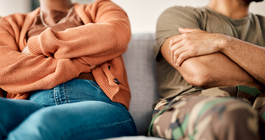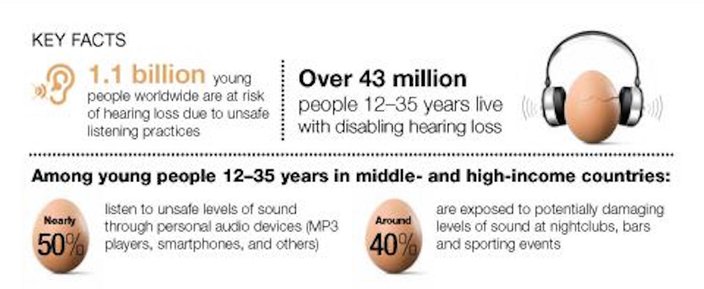
February 27, 2015
Some 1.1 billion teenagers and young adults are at risk of hearing loss, according to the World Health Organization (WHO).
The organization said this is due to the unsafe use of personal audio devices, as well as exposure to damaging levels of sound at noisy entertainment venues.
“As they go about their daily lives doing what they enjoy, more and more young people are placing themselves at risk of hearing loss,” said Dr. Etienne Krug, WHO director for the Department for Management of Noncommunicable Diseases, Disability, Violence and Injury Prevention.
According to WHO's analysis of data from studies in middle- and high-income countries, nearly 50 percent of teenagers and young adults aged 12-35 years are exposed to unsafe levels of sound from the use of personal audio devices. Around 40 percent are exposed to potentially damaging levels of sound at entertainment venues like nightclubs and sporting events.
For example, unsafe levels of sounds can be exposure to an excess of 85 decibels (dB) for eight hours or 100 dB for 15 minutes.
“They should be aware that once you lose your hearing, it won’t come back," Krug said. "Taking simple preventive actions will allow people to continue to enjoy themselves without putting their hearing at risk.”
WHO said people can better protect their hearing by keeping the volume low on personal audio devices, wearing earplugs when visiting noisy venues and using carefully fitted, noise-canceling headphones.
The organization also suggests limiting the time spent engaged in noisy activities by taking breaks and restricting the daily use of personal audio devices to less than one hour.
In celebration of International Ear Care Day on March 3, WHO is launching the “Make Listening Safe” initiative to draw attention to the dangers of unsafe listening.
